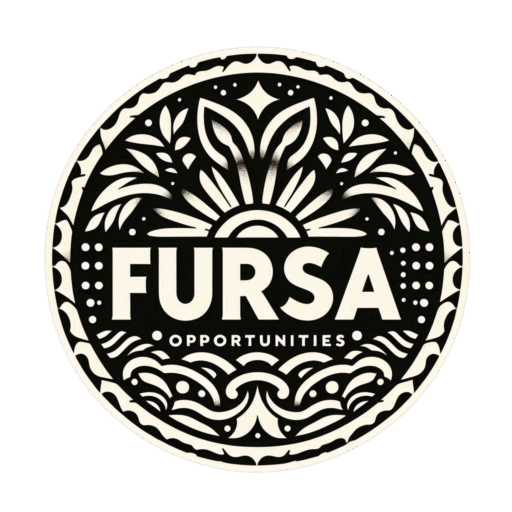Let us have a look at the Ultimate CV Checklist: 10 Things Recruiters Look For , this are tips for Crafting an Effective Curriculum Vitae and are a useful Checklist for Candidates to guide them in Preparing a greater CV,
In the professional realm, your curriculum vitae (CV) serves as your initial introduction to potential employers. A well-structured and compelling CV can significantly enhance your candidacy, whereas a poorly presented one may impede your progress. To assist candidates in developing a CV that makes a positive and memorable impact, we present a comprehensive checklist outlining 10 essential elements that recruiters typically evaluate.
Professional Formatting and Layout: Recruiters frequently allocate only a brief period to review each CV. Consequently, a clean, well-organized, and easily scannable layout with clear headings and consistent formatting is paramount for a favorable initial impression. Avoid visual clutter, decorative fonts, or superfluous graphics, unless the industry or role specifically necessitates a creative presentation.
Recommendation: Employ standard, professional fonts such as Arial, Calibri, or Times New Roman. Utilize bullet points effectively to structure information concisely.
Accurate and Accessible Contact Details: Ensure your contact information is current and prominently located. Include your full name, professional telephone number, a dedicated professional email address, and a link to your LinkedIn profile (if relevant). Meticulously verify these details to prevent any potential communication barriers.
Guideline: Utilize a professional email address; register a new one if your current address is unsuitable for professional correspondence.
Content Customization: A generic CV is less likely to progress through the initial screening stages. Customize your CV specifically for each application by emphasizing skills, experiences, and accomplishments that directly align with the requirements outlined in the job description. Incorporate relevant keywords from the job posting to demonstrate a clear match.
Suggestion: Maintain tailored versions of your CV for distinct types of roles to streamline the application process.
Professional Summary or Profile: Commence your CV with a concise professional summary or profile statement. This section should succinctly articulate your professional identity, core competencies, and value proposition, typically within a few impactful sentences.
Recommendation: Develop specific summaries that highlight skills and achievements relevant to the target position, rather than employing generic statements.
Quantifiable Accomplishments: Recruiters value quantifiable data as it provides concrete evidence of your impact and contributions. Where feasible, quantify your achievements (e.g., “Increased sales revenue by 20%” or “Managed a team of 10 professionals”). This practice substantiates your capabilities.
Guideline: Begin descriptive bullet points with strong action verbs such as “Led,” “Achieved,” “Optimized,” or “Generated.”
Relevant Professional Experience: Prioritize work experience that is directly applicable to the position being sought. Present your employment history in reverse chronological order, detailing key responsibilities and significant accomplishments for each role.
Suggestion: For less relevant or older positions, consider providing a brief overview or, if necessary to maintain conciseness (ideally within two pages), omitting them.
Core Competencies and Skills: Dedicate a section to highlight your key technical and soft skills. Utilize bullet points to enhance scannability and focus on competencies that are directly relevant to the requirements outlined in the job description.
Recommendation: Include a balance of industry-specific skills (e.g., SEO, Python programming) and transferable skills (e.g., leadership, strategic communication).
Education and Professional Credentials: Include details of your academic qualifications and any pertinent professional certifications. For recent graduates, this section may be positioned more prominently than work experience. Candidates with extensive professional history should present this information concisely.
Guideline: Include academic honors, awards, or relevant coursework where appropriate.
Demonstration of Soft Skills: Employers increasingly value soft skills such as collaboration, problem-solving, and adaptability. Provide specific examples demonstrating how you have applied these skills in previous roles or projects.
Suggestion: Consider employing methodologies like the STAR method (Situation, Task, Action, Result) to structure compelling descriptions of relevant accomplishments.
Accuracy and Proofreading: The presence of errors in spelling, grammar, or punctuation can negatively impact a recruiter’s perception. Thoroughly proofread your CV multiple times. Seeking review from a trusted colleague or mentor is highly recommended.
Recommendation: Utilize available tools, such as grammar checkers, to identify and correct common writing errors and enhance overall readability.
Additional Considerations:-
Conciseness: Aim to limit the length to one or two pages, depending on your level of experience.
Supplementary Materials: Include links to professional portfolios or relevant project examples where appropriate.
Regular Updates: Periodically revise your CV to incorporate recent achievements and experiences.
Adhering to the elements outlined in this checklist can significantly enhance the effectiveness of your CV and increase your likelihood of securing an interview. Investing diligent effort in refining and customizing your CV is a valuable endeavor in your job search.

